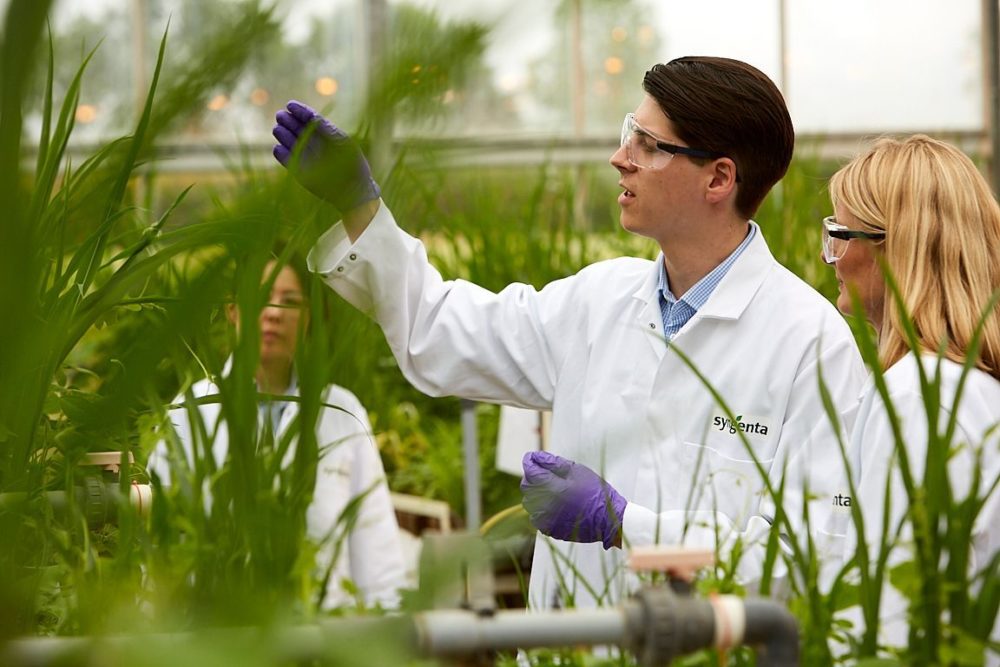When it comes to companies going public, agrifood seems to be reaching its inflexion point.
The SPAC craze continues, with everything from indoor farms to gluten-free biltong merging with listed vehicles. Others, like Oatly, Sweetgreen, and Farmers Edge, are opting for the more traditional route; this week, it was reported that plant-based egg and cell-cultured chicken pioneer Eat Just is mulling a float that would value it at $3 billion by early next year.
While all of those may mean something for those of us who cozily inhabit the agrifoodtech bubble, folks on the outside can be forgiven for not having heard of many of these companies.
But this year’s biggest agrifoodtech IPO looks very likely to involve a company that even the most infrequent or accidental among AFN‘s readers have probably heard of.
Syngenta Group is planning to go public on Shanghai’s tech-oriented STAR Market at a valuation of around $60 billion including debt and $50 billion without, sources with “direct knowledge of the matter” have told Reuters.
According to the report, Chinese state-owned enterprise (SOE) ChemChina is expecting to raise close to $10 billion for the Swiss agrochemicals and seeds company it acquired in 2017.
That would make Basel-based Syngenta the year’s biggest IPO worldwide, outstripping social media video app Kuaishou‘s $6.2 billion Hong Kong float in February.
It would also break records for the two year-old STAR Market, which missed out on fintech giant Ant Group‘s $34 billion IPO after it was scuppered by Chinese regulators last December.
Syngenta could file its IPO prospectus as soon as next week, and may seek a secondary listing in Zurich, New York, London, or Hong Kong, the report said.
Around a third of the proceeds from the float will be used to repay debts, with the rest mainly earmarked for investment in R&D and “new businesses.”
Chinese takeover
Syngenta agreed to a $43 billion takeover by ChemChina — to date, the largest Chinese purchase of a foreign company — in Febraury 2016. The deal completed in May 2017 after being cleared by regulators in the US, EU, and Australia, among others (given the ratcheting-up of geopolitical tension between China and Western powers since then, it isn’t clear if the deal would’ve been able to go through today.)
At around the same time, ChemChina entered discussions with fellow Chinese SOE Sinochem — itself a major player in agrochemicals — with a view to a potential merger worth an estimated $120 billion. That mega-combination got the nod from Chinese regulators in April this year.
But prior to this seal of approval, the two SOEs agreed in early 2020 to combine their respective agriculture-related businesses; from ChemChina’s side, that included Syngenta as well as Israeli crop protection company Adama.
This resulted in the creation of a rebranded, restructured Syngenta Group last June, which made $23 billion in sales in FY 2019 and employed 48,000 people across more than 100 countries as of that date.
Syngenta stock was previously traded on the New York Stock Exchange and Zurich’s Swiss Exchange. Its shares were delisted from both in early 2018.
A major agrifoodtech player
So it isn’t what we’d typically talk about when we discuss potential or actual agrifoodtech IPOs here at AFN. Normally, we’re wondering which startup will be next to hit the public markets – either through a traditional share sale, or — increasingly — by reverse-merging with a SPAC.
But Syngenta surely has a shout at being considered an agrifoodtech player, even if it doesn’t fit the bill of being a Silicon Valley or Singapore-based startup solely focused on alternative proteins, indoor farming robots, or some other ‘novel,’ tomorrow’s-world technology.
Syngenta is, after all, among the most active corporate investors and acquirers in agrifoodtech. Last year it bought Italian biological inputs maker Valagro. Other acquisitions in recent years include Ukrainian digital crop monitoring startup Cropio, US farm management software providers FarmShots and AgConnections, and Strider in Brazil.
Through its VC arm Syngenta Ventures it has invested in dozens of startups – most recently including Indian farmer financing platform Jai Kisan’s $30 million Series A round.
Syngenta Ventures on ChemChina, business model innovation, and ‘agri-fintech’ – read more here
One question that may be on the minds of current and prospective Syngenta investees is how their shareholder’s reclaimed public company status, as well as its Chinese SOE majority ownership, might impact their own businesses and fundraising efforts.
Speaking to AFN in 2019, Syngenta CEO Erik Fyrwald said that the company’s takeover by ChemChina “gives us the freedom for increased investment in world-class R&D around seeds and crop protection.” And earlier this year, Syngenta Ventures managing director Shubang Shankar told AFN that the buyout has had a “positive impact” on his team and “reinforces its importance.”
“We now have better insight into the Chinese market, which is of interest for many startups as they look to expand into new geographies,” he added.
Whatever the case, it’ll certainly be worth keeping an eye on Syngenta’s startup-related activity going forward.
Comment? News tip? Story idea? Email me at [email protected] or find me on LinkedIn and Twitter





